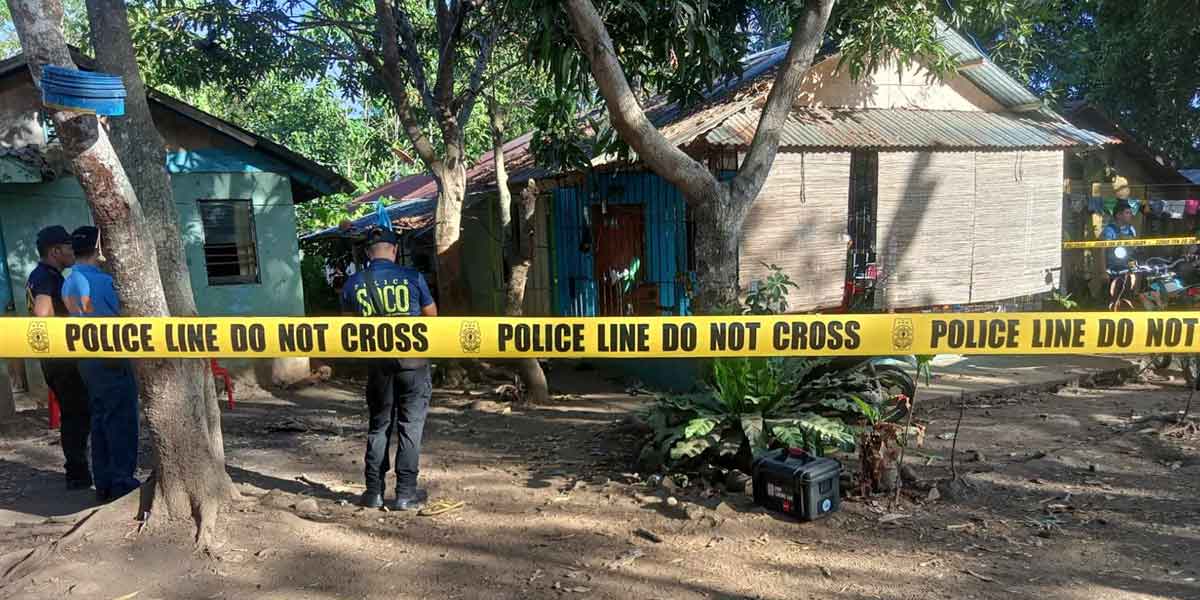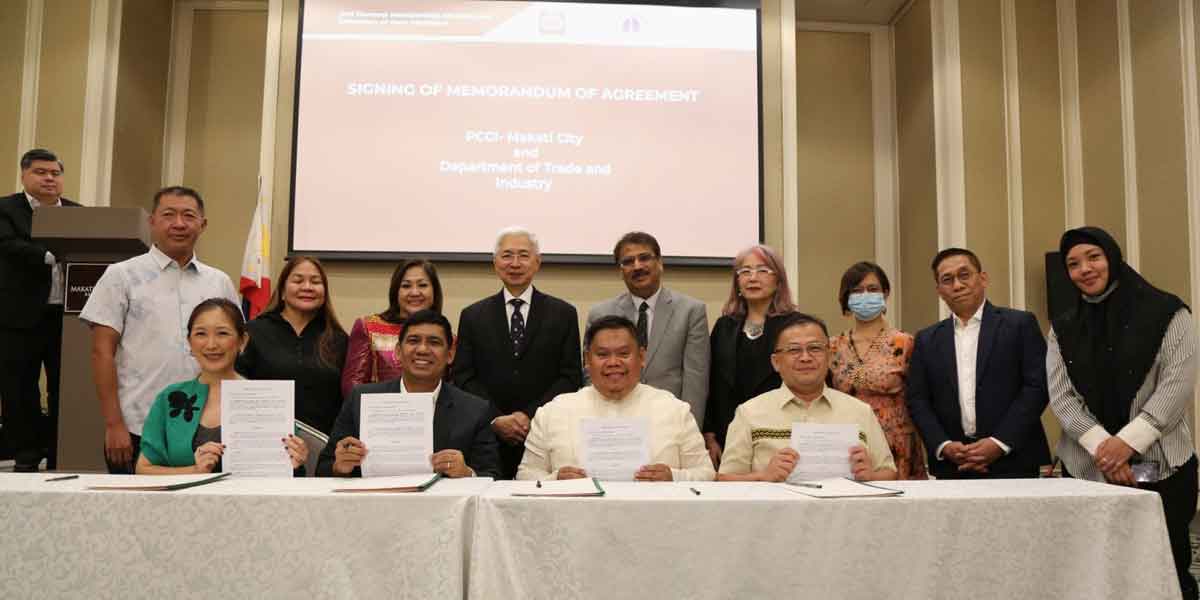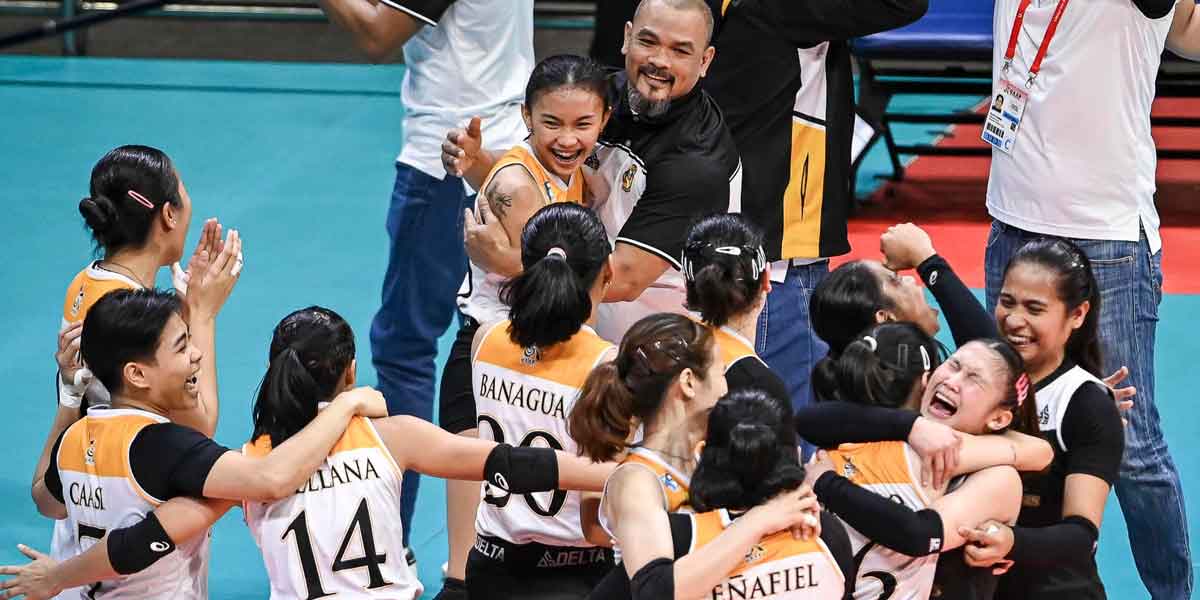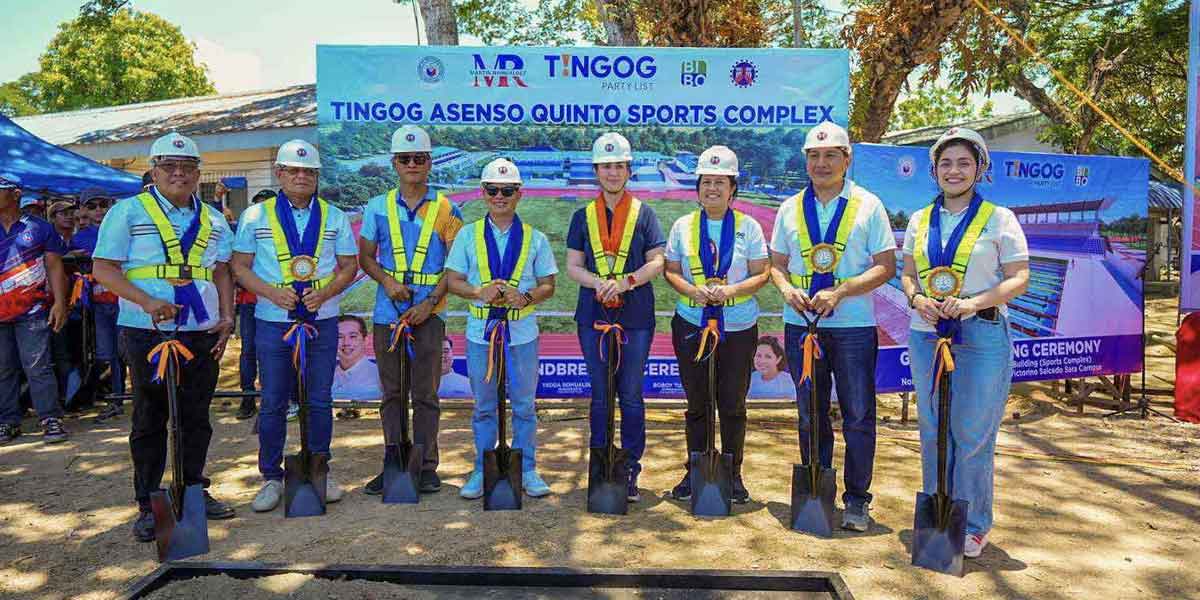Sa ika-duwa nga presidential debate nga gin sponsor sang Commission on Elections (Comelec), ginpahayag ni Senator Panfilo “Ping” Lacson nga ang Pilipinas amo dapat ang pinakauna nga bansa sa ASEAN nga maga-kondenar sa Myanmar bangud sa pagbalewala sini sang human rights.
ANG PAG-ANGKON:
Sang ginpamangkot ang mga kandidato ano ang ila nga mangin posisyon sa human rights violation nga nagakalatabo sa iban nga pungsod sa ASEAN, ginhambal ni Senator Lacson nga ang Pilipinas isa ka myembro sang United Nations (UN) kag dapat i-adopt sini ang Universal Declaration of Human Rights (UDHR).
“Bilang pangulo, kung walang mangunguna, dapat manguna tayo sa ASEAN countries para kundenahin ang represyon na nangyayari sa bansang Myanmar,“ hambal ni Lacson.
RATING: KULANG SA KONTEKSTO
ANG MATUOD:
Ang Pilipinas amo isa sa mga orihinal nga founder sang ASEAN sang 1967. Apisar mayara ini sang mekanismo sa karapatang pantao, nga ginpasambong sa mga ulihi nga tuig, mayara sini sang sagrado nga prinsipyo sa hindi pagmitir sa mga domestic affairs.
Ang mga miyembro sang ASEAN wala gina imbitar nga magamitir sa domestic affair sang isa kag isa. Bangud ang ini nga prinsipyo nagahatag importansya sa state autonomy kag internal stability, kag bangud diri, ang independent resolution sang estado mismo sa ano man nga instability.
Ang prinsipyo sang non-interference ginpasangkad man sa 1976 Treaty of Amity and Cooperation in Southeast Asia (TAC).
Ang article 2 sang TAC nagasiling, “In their relations with one another, the High Contracting Parties shall be guided by the following fundamental principles: (b) The right of every State to lead its national existence free from external interference, subversion or coercion; and (c) Non-interference in the internal affairs of one another.”
Ang prinsipyo sang non-interference nakasulat man sa Article 11 sang TAC:
“The High Contracting Parties shall endeavor to strengthen their respective national resilience in their political, economic, socio-cultural as well as security fields in conformity with their respective ideals and aspirations, free from external interference as well as internal subversive activities in order to preserve their respective national identities.”
Apang sa parte sang globalisyasyon kag paghatag importansya sa pagpasangkad sang human rights sa mga niligad nga tuig, ang mga estado nga miyembro sang ASEAN nakatigayon na subong sang isa ka kolektibo nga diskarte sa pagtugon sa isyu sa rehiyon.
Ang pamaagi sang ASEAN sa pagdesisyon sa isa ka miyembro sang estado amo ang konsultasyon kag pagpakamaayo sang tanan kung sa diin all nga miyembro dapat para na sa kooperasyon sang regional cooperation kag pagpati sa mga values sini.
Sang mga nanligad nga mga tuig, ang napatay na nga si Blas Ople, nga amo ang foreign secretary sang pungsod nga nagpakita sang kaugot sa Myanmar generals sa isa ka ministral meeting sa Cambodia, nanawagan sa junta military nga ipalaya ang lider sang oposisyon ga si Daw Aung San Suu Kyi.
Ang Pilipinas pwede lamang maka-release sang opisyal nga pahayag sa mga bagay nga may kaangut sa domestic affairs sang iban nga ASEAN countries kung ang tanan nga miyembro sang state maga-agree sa isa ka panindugan bilang isa ka rehiyon.
NGAA INI IMPORTANTE:
Kung ang Pilipinas magakondenar sang isa ka ASEAN nga pungsod sa pagpawala sa human rights, nagabayolar ini sang prinsipyo sang ASEAN region nga non-interference.
Sa pamangkot nga natuhoy sa dispute sa West Philippine sea, iban nga kandidato nagsaysay kung paano ang prinsipyo sang non-interference makahatag sang paghangkat bangud kay dapat mayara sang consensus kung ang iban nga mga miyembro sang states may personal nga interes sa China.
(Gin-lubad ni Iris Mabatid sang West Visayas State University-College of Communications para sa Daily Guardian)
Daily Guardian is part of #FactsFirstPH, which brings together various sectors that are committed to promoting truth in the public space, and exacting accountability on those who harm it with lies. For those interested to join the initiative, email editorial@dailyguardian.com.ph and info@factsfirst.ph, or send a message to facebook.com/DailyGuardianPH.
(April 4, 2022) – During the second edition of the Commission on Elections (Comelec)-sponsored presidential debate, Senator Panfilo “Ping” Lacson said the Philippines should be the first country in the Association of Southeast Asian Nations (ASEAN) to condemn Myanmar’s disregard for human rights.
(April 4, 2022)- Sa ika-duwa nga presidential debate nga gin sponsor sang Commission on Elections (Comelec), ginpahayag ni Senator Panfilo “Ping” Lacson nga ang Pilipinas amo dapat ang pinakauna nga bansa sa ASEAN nga maga-kondenar sa Myanmar bangud sa pagbalewala sini sang human rights.
CLAIM:
When the presidential candidates were asked what their position would be on the human rights violations in some countries in the ASEAN region, Senator Lacson pointed out that the Philippines is a member of the United Nations (UN) and therefore adopts the Universal Declaration of Human Rights (UDHR).
ANG PAG-ANGKON:
Sang ginpamangkot ang mga kandidato ano ang ila nga mangin posisyon sa human rights violation nga nagakalatabo sa iban nga pungsod sa ASEAN, ginhambal ni Senator Lacson nga ang Pilipinas isa ka myembro sang United Nations (UN) kag dapat i-adopt sini ang Universal Declaration of Human Rights (UDHR).
“Bilang pangulo, kung walang mangunguna, dapat manguna tayo sa ASEAN countries para kundenahin ang represyon na nangyayari sa bansang Myanmar,“ Lacson said.
“Bilang pangulo, kung walang mangunguna, dapat manguna tayo sa ASEAN countries para kundenahin ang represyon na nangyayari sa bansang Myanmar,“ hambal ni Lacson.
RATING: LACKS CONTEXT
FACTS:
The Philippines is among the original founders of the ASEAN in 1967. Although it has a human rights mechanism, adopted in later years, the bloc also has a sacrosanct principle of non-interference in domestic affairs.
RATING: KULANG SA KONTEKSTO
ANG MATUOD:
Ang Pilipinas amo isa sa mga orihinal nga founder sang ASEAN sang 1967. Apisar mayara ini sang mekanismo sa karapatang pantao, nga ginpasambong sa mga ulihi nga tuig, mayara sini sang sagrado nga prinsipyo sa hindi pagmitir sa mga domestic affairs.
ASEAN members are discouraged from meddling in one another’s domestic affairs. This guiding principle is meant to promote state autonomy and internal stability, and in turn, a states’ independent resolution of any instability.
Ang mga miyembro sang ASEAN wala gina imbitar nga magamitir sa domestic affair sang isa kag isa. Bangud ang ini nga prinsipyo nagahatag importansya sa state autonomy kag internal stability, kag bangud diri, ang independent resolution sang estado mismo sa ano man nga instability.
The principle of non-interference is also reinforced in the 1976 Treaty of Amity and Cooperation in Southeast Asia (TAC).
Ang prinsipyo sang non-interference ginpasangkad man sa 1976 Treaty of Amity and Cooperation in Southeast Asia (TAC).
Article 2 of the TAC states, “In their relations with one another, the High Contracting Parties shall be guided by the following fundamental principles: (b) The right of every State to lead its national existence free from external interference, subversion or coercion; and (c) Non-interference in the internal affairs of one another.”
Ang article 2 sang TAC nagasiling, “In their relations with one another, the High Contracting Parties shall be guided by the following fundamental principles: (b) The right of every State to lead its national existence free from external interference, subversion or coercion; and (c) Non-interference in the internal affairs of one another.”
The principle of non-interference is also mentioned in Article 11 of the TAC:
Ang prinsipyo sang non-interference nakasulat man sa Article 11 sang TAC:
“The High Contracting Parties shall endeavor to strengthen their respective national resilience in their political, economic, socio-cultural as well as security fields in conformity with their respective ideals and aspirations, free from external interference as well as internal subversive activities in order to preserve their respective national identities.”
But in light of globalization and putting greater emphasis on upholding human rights in recent years, ASEAN member states have now developed a collective approach in addressing regional issues.
Apang sa parte sang globalisyasyon kag paghatag importansya sa pagpasangkad sang human rights sa mga niligad nga tuig, ang mga estado nga miyembro sang ASEAN nakatigayon na subong sang isa ka kolektibo nga diskarte sa pagtugon sa isyu sa rehiyon.
The ASEAN way of reaching a decision on a member state is by consultation and consensus wherein all members must be for regional cooperation and in agreement with these shared values.
Ang pamaagi sang ASEAN sa pagdesisyon sa isa ka miyembro sang estado amo ang konsultasyon kag pagpakamaayo sang tanan kung sa diin all nga miyembro dapat para na sa kooperasyon sang regional cooperation kag pagpati sa mga values sini.
In the past, the late Blas Ople, who was the country’s foreign secretary blasted Myanmar generals in one of the ministerial meetings in Cambodia, calling on the military junta to free Myanmar opposition leader Daw Aung San Suu Kyi.
Sang mga nanligad nga mga tuig, ang napatay na nga si Blas Ople, nga amo ang foreign secretary sang pungsod nga nagpakita sang kaugot sa Myanmar generals sa isa ka ministral meeting sa Cambodia, nanawagan sa junta military nga ipalaya ang lider sang oposisyon ga si Daw Aung San Suu Kyi.
The Philippines can only release an official statement regarding the domestic affairs of another ASEAN country if all member states agree to the stance they choose as a region.
Ang Pilipinas pwede lamang maka-release sang opisyal nga pahayag sa mga bagay nga may kaangut sa domestic affairs sang iban nga ASEAN countries kung ang tanan nga miyembro sang state maga-agree sa isa ka panindugan bilang isa ka rehiyon.
WHY THIS MATTERS:
If the Philippines condemns another ASEAN country for disregarding human rights on its own, it would violate the regional body’s principle of non-interference.
NGAA INI IMPORTANTE:
Kung ang Pilipinas magakondenar sang isa ka ASEAN nga pungsod sa pagpawala sa human rights, nagabayolar ini sang prinsipyo sang ASEAN region nga non-interference.
In an earlier question regarding the West Philippine Sea dispute, other candidates mentioned how the ASEAN principle of non-interference poses a significant challenge as it requires coming into a consensus when the different member states have personal interests with China.
Sa pamangkot nga natuhoy sa dispute sa West Philippine sea, iban nga kandidato nagsaysay kung paano ang prinsipyo sang non-interference makahatag sang paghangkat bangud kay dapat mayara sang consensus kung ang iban nga mga miyembro sang states may personal nga interes sa China.



















